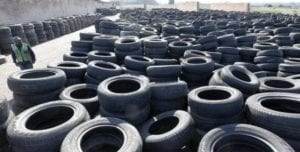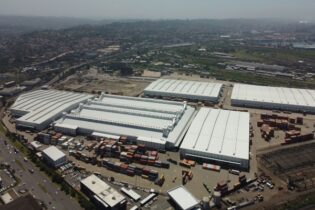 With the recent liquidation of Recycling and Economic Development in South Africa (REDISA), tyre recycling has become one of the hottest topics at both a local and international level, according to tyre industry veteran John Stone.
With the recent liquidation of Recycling and Economic Development in South Africa (REDISA), tyre recycling has become one of the hottest topics at both a local and international level, according to tyre industry veteran John Stone.
Stone says this has raised the larger question of whether or not tyre recycling is a viable business to explore. REDISA was established to mitigate the detrimental impact of waste tyres on public health, environment, and economic development of lands, whilst involving local communities through job creation. It had set to achieve an ambitious goal of recycling 100% of the waste tyres (246 631 tons) produced in Africa in 2011, by the end of 2017. As of February 2016, it had helped the creation of 226 small businesses and 3112 jobs. 12 728 tons of waste tyres were processed according to the Department of Environmental Affairs.
Exploring new opportunities
Stone says that while the results were remarkable, they were far from achieving the nation’s objective of recycling 100% of its 38 waste streams by 2022. “The blueprint which REDISA was built on is no longer valid, with businesses opposing the move in view of cost factor and in turn, leading to jobs cut,” he explains. “While there are apprehensions about the impact REDISA’s liquidation has on the tyre industry, others are actively exploring various opportunities to recycle waste tyres for profits,” Stone notes.
Here are some examples of South African businesses which had successfully turn waste into worth over a span of few years.
Tyre recycling for small business owners
Stone believes entrepreneurs and small business owners could potentially model after SoleRebel’s success in creating a home-grown footwear label. “SoleRebel’s business model not only gives locally-sourced and recycled tyre materials a new lease of life, it also creates jobs and skills-upgrading opportunities for the local communities with little reliant on advanced technology and huge capital,” he says.
Tyre recycling for larger enterprises
For larger enterprises that are able to leverage on economy of scale, Stone says they could exploit the use of advanced technology along with strategic partnerships with international players. “Mathe Group is a leading example which projected its Return-on-Investment within 2 years of operation,” he notes. Stone adds that larger enterprises can explore options of providing recycled materials for both consumer and commercial markets. Some examples include rubber crumb for playground products, railway crossing panels and rubber powder for protective and architectural coatings applications. “As South Africa continues to progress, its tyre recycling industry will increasingly play an important role in boosting her economic potential. Tyre recycling businesses need to actively engage with the policy makers and local communities to ensure their own survival and growth in the ever-changing competitive landscape,” concludes Stone.
 With the recent liquidation of Recycling and Economic Development in South Africa (REDISA), tyre recycling has become one of the hottest topics at both a local and international level, according to tyre industry veteran John Stone.
With the recent liquidation of Recycling and Economic Development in South Africa (REDISA), tyre recycling has become one of the hottest topics at both a local and international level, according to tyre industry veteran John Stone.





